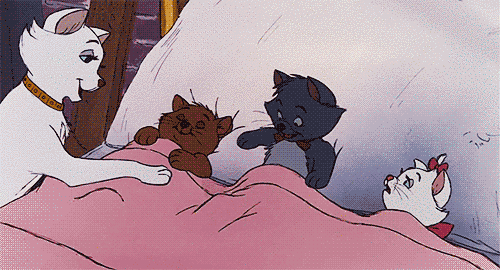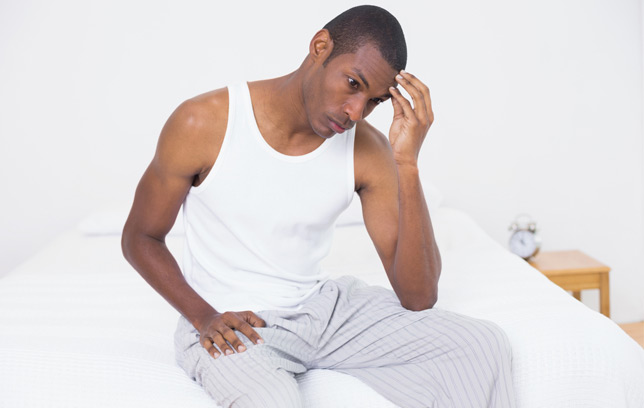“The brain craves routine for good sleep.”
Dr. Nitun Verma, a Stanford-trained sleep doctor, recently went on Reddit to answer questions about sleep. Here are some of the important takeaways from his AMA:
The three keys to a getting a good night’s sleep:
Buena Vista Distribution / Via giphy.com
According to Verma, poor sleep boils down to three key areas: poor timing (waking at different times every day), poor quality (continually waking up during the night), and poor quantity (four to five hours of sleep during the night).
Regarding sleeping in on the weekends:
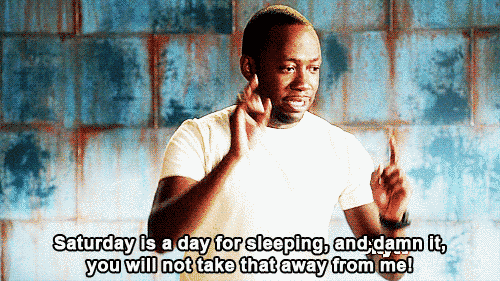
20th Television / Via tumblr.com
In order to get the most out of the day, Verma suggests waking up “within the hour” you normally do during the week, “otherwise it is similar to experiencing jet lag twice a week.” Why? Because “the brain craves routine for good sleep.”
So how much sleep should you get a night?

Buena Vista Pictures / Via giphy.com
“Get those seven to nine hours of sleep!”
OK, but what if a job/residency requires day/night shifts?

Unfortunately, shifting your sleep schedule “causes poor sleep and focus,” called “shift work sleep disorder.” While Verma recommends keeping your sleep schedule the same all week, a good way to combat this disorder is to get “blackout curtains, earplugs, and silence your phone.”
Another way to make sure your sleep is as high quality as possible is to “drown out other noises” with a white noise machine or fan. And to improve alertness on the job, Verma also recommends “taking a nap before your night work shift,” and to make sure the lights are “as bright as possible.”
Debunking a common sleep myth:

The Tonight Show Starring Jimmy Fallon / Via fallontonightgifs.tumblr.com
“When people get a low amount of sleep (like four to five hours) for a long time, they think they’ve gotten used to it, and don’t need the usual amount.” This is simply not true, according to Verma, who explains that while it IS true that a person may not feel as sleepy as they used to, the problem is that the “brain isn’t working as fast as it used to.”
Simply put, FEELING sleepy is not the same as BEING sleepy.
But what if that small amount of sleep is a DEEP sleep?
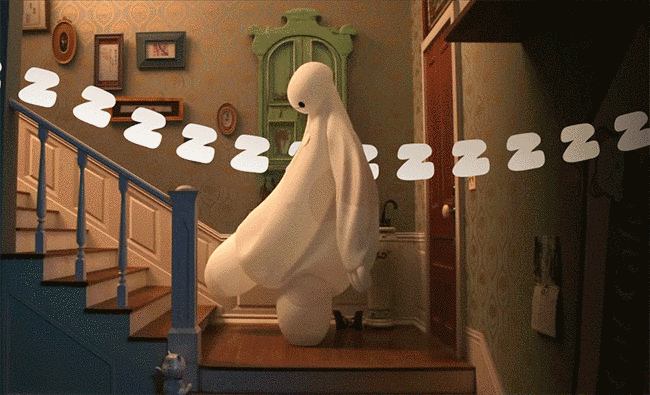
Walt Disney Studios Motion Pictures / Via disneyanimation.tumblr.com
“I don’t doubt that someone sleeping five hours a night for a long time will report few sleep awakenings and reduced sleep fragmentation. But I doubt the compensation of correcting their sleep drive/sleep debt is 100%.” In other words, it’s still best to get those seven to nine hours of sleep.
Are there really different stages of sleep?

20th Century Fox / Via reddit.com
Yes. “It is true that when you are super tired/sleepy, that your arousal threshold changes. For example, if someone hasn’t slept in a week, when they do sleep, it is hard to wake them up, and they can sleep through alarms. It’s the brain’s way of getting as much sleep as possible.”
And what about REM (Rapid Eye Movement) sleep?
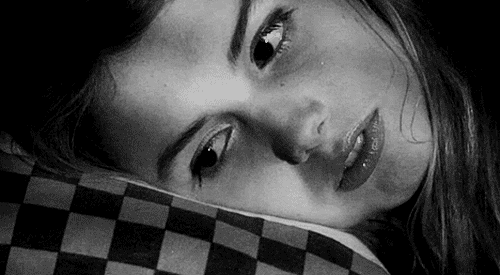
All3Media / Via giphy.com
According to Verma, “most dreams occur in REM sleep, but REM sleep doesn’t fill the whole sleep period. For example, even if you sleep eight hours, your first REM period would be pretty short. There is more REM in the second half of the night.”
How long should it take to fall asleep?

Cartoon Network Studios / Via giphy.com
“You should fall asleep before 30 minutes.”
Why does it take so long for some people to fall asleep?
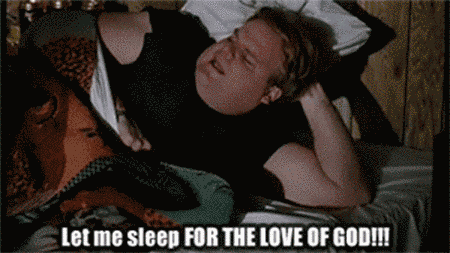
Paramount Pictures / Via imgur.com
“The most common reason to take too long to fall asleep is insomnia. It can be caused by stress, medications, anxiety. It can affect more than half of people occasionally.”
On dealing with a restless mind at night and the inability to fall asleep:
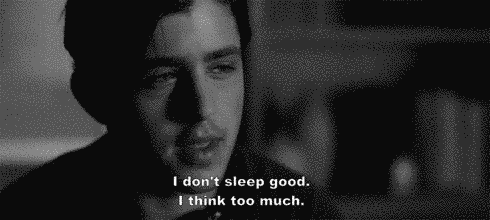
Sony Pictures Classics / Via dead-iceflowers.tumblr.com
This is pretty common, according to Verma, but often misdiagnosed because “it’s hard to know whether it’s insomnia vs. delayed sleep phase syndrome.” While it is unhelpful to “just go to bed earlier,” Verma claims that part of it can be treated “by light exposure” rather than medications, with the idea being “to get bright light exposure just after waking and create a dark environment a few hours before bed.” This contrast “shifts alertness and sleepiness earlier, so you’d wake happier in the morning, and sleep faster at night.”
Regarding Restless Leg Syndrome:
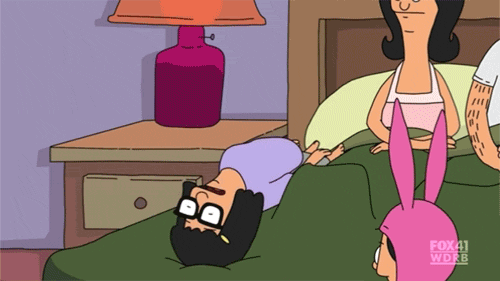
20th Television / Via learn2internet.tumblr.com
“There are two general types of primary RLS. One runs in the family, affects people early, and progresses slowly. The other is the opposite.” One way to diagnose RLS is to check “people’s iron stores,” and a simple solution that can help this sensation is a “massage at night before sleep.” But be careful with what you put into your body, since “some sleep meds and caffeine” can make symptoms worse.
Is it normal to wake up a few times per night?

Via gifbin.com
Stating that he’s never seen a sleep study “where someone has fallen asleep and slept for eight hours without any arousals,” Verma insists that “unless you have other symptoms,” waking up a couple times per night is fine, “especially if you’re healthy and fall asleep quickly.”
What’s the most common cause of sleeplessness or insomnia?

Warner Bros. Television Distribution / Via tardischasingcompanion.tumblr.com
According to Verma, “stress often causes insomnia, or increased time needed to fall asleep.” Although medication can help, the best way to treat sleeplessness is by practicing better sleep hygiene. “Sleep hygiene works by giving your brain time to relax after the day to sleep faster and deeper at night.”
The effect drinking has on sleep:
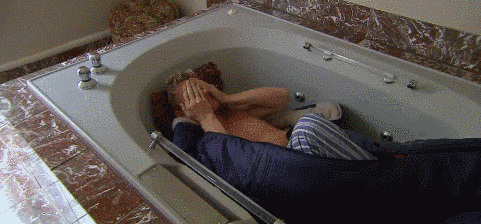
Via giphy.com
Drinking frequently (four- to five-plus nights a week) could result in “light sleep, nightmares, and significant sleep disruption,” which could last “not just for days but for several months,” even after drinking has stopped.
On dealing with auditory hallucinations, visual hallucinations of your body “coming out of itself,” and sleep paralysis:

Logan Rhoades / BuzzFeed / Via youtu.be
While these sensations may run in the family, disrupted sleep can worsen the effects, therefore Verma suggests a two-week experiment of “really good sleep habits,” working on timing, quality, and quantity. The good news, however, is that you CAN outgrow it.
On how to deal with and cure sleep apnea:
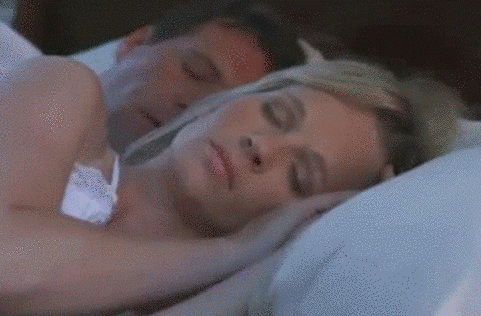
i.imgflip.com / Via reddit.com
While losing weight is “the best way” to cure sleep apnea, CPAP (continuous positive airway pressure) can also help, although it is “unlikely that a CPAP user will outgrow their apnea, or that the CPAP is a cure.” Even the way you sleep can have an effect. According to Verma, apnea sometimes “hides in REM sleep, and in only certain sleep positions,” meaning you may experience apnea when sleeping on your back, as opposed to sleeping on your side.
And finally, on the use of mobile sleep apps:
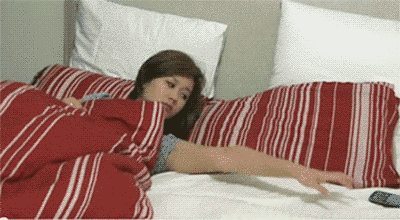
While most apps and wearable devices are helpful in that they can track movement, Verma insists that it’s only somewhat helpful since they’re operating under the assumption “that if someone is not moving it means deep sleep, moving a little means light sleep, and moving a lot means wake.”
For more on this topic, feel free to browse the Reddit thread or check out Dr. Verma’s blog PeerWell.










